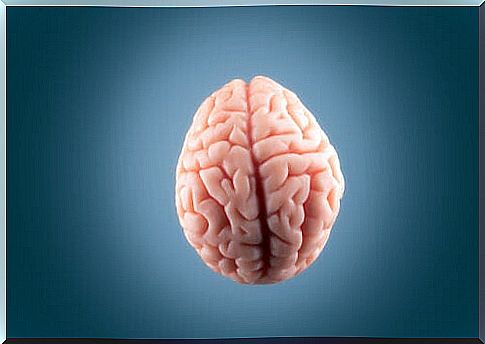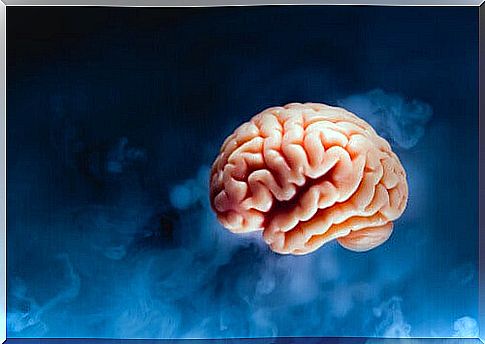Why Is There So Much Fat In The Brain?

Why is there so much fat in the brain? Until recently, fat has been the main enemy of most people’s diets. However, the brain contains fat and needs this to function. In fact, fat is the most common substance in the brain (about 60%), along with water. This makes it the fattest organ in the whole body.
Thus, the brain collects a lot of the fat we eat, and contrary to what we might have expected, it does not do so to get energy.
But when we consume fewer calories, we do not reduce the fat level in the brain. In addition, a reduction in this fat would only affect its vital functions. Therefore, it is not correct to assume that fat is bad for the brain, as it is part of the structure of the brain and affects its performance.

Why is there so much fat in the brain?
First, we need to clarify that the fat contained in the brain is not the same as the fat in adipose tissue. This type of fat, in addition to isolating the various organs, has an energetic function. However, this is not the case with the brain.
The brain needs fat because it is a good insulator for electricity. It is as if the neurons and different regions of the brain communicate with each other by means of electrical impulses. Without the fat that covers the axons of the neurons (called myelin), the impulses that transmit information would spread and thus not reach their destination. In addition, the electricity produced can damage the brain tissue by burning it.
In this way, the grease absorbs the heat, insulates the electricity and enables greater conductivity. This means that the electrical impulses can be transmitted faster and more efficiently.
In addition to this, fat is the key to how the brain performs its functions, as well as helping to renew and restore damaged nerve cells. Consequently, the lack of fat would cause a deterioration of the physical and functional brain. However, optimal fat levels can prevent neurodegenerative diseases.
Which fat is good for the brain?
Many foods are high in fat, but not all of them are good for your health or your brain. Of the fat found in the brain, 25% is cholesterol, which is important for memory and learning. In fact, the brain cells themselves are responsible for producing cholesterol.
The brain’s favorite fats are polyunsaturated fatty acids, also known as omega. These, and especially omega-3, are fatty acids that are necessary for brain function and need to be replenished from time to time. In this case, the human body does not produce these types of nutrients, so it is important that we get them through food.
Here are some of the best foods to eat to provide the brain with the fats it needs:
Oily fish and fish oil
Fish, such as sardines, tuna or mackerel, are very rich in omega-3. In addition, they are very useful in general and beneficial in times of stress or depression. A recommendation to increase the effect is to eat them fresh and if possible try to make sure that they are not too large, as they thus contain fewer heavy metals.
Extra virgin olive oil
This type of oil, cold pressed, contains a large amount of polyphenols, antioxidants that prevent aging and the breakdown of neurons. However, it is important to know that these health effects are lost when the oil is heated during frying, for example.
Walnuts
This is another of the most beneficial foods for the brain, and strangely enough, they even look like our brain! Nuts are the main sources of plant-based omega-3 fatty acids and because of this they are very good for stimulating and protecting the brain.
Avocado
Avocado is considered a superfood because it contains about 20 different vitamins and minerals, such as vitamin C, vitamin K, vitamin B6, potassium, magnesium and iron. It also provides the amount of monounsaturated fatty acids that are necessary for the brain. This fruit provides proper amounts of energy to the brain and improves cognitive functions.
In short, the best diet is the one that meets our nutritional needs. Following a low-fat diet can be healthy for some people and at certain times. Fats, in the right proportion, are, however, always necessary.








